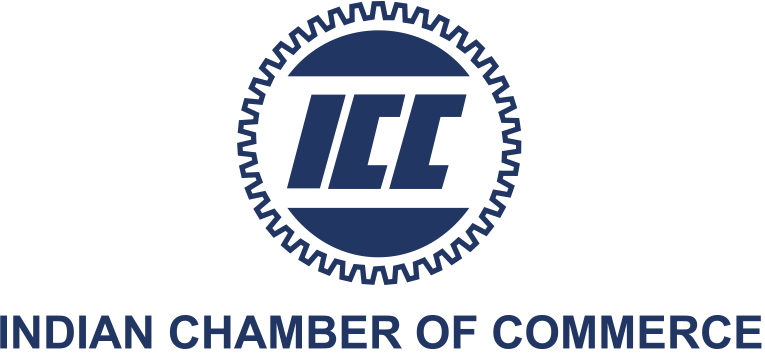The Indian economy, which is on the cusp of becoming the world’s third largest economy, has been recording one of the highest rates of growth among the major global economies. This engine of growth, which is raising standards of living and expectations among the younger educated and skilled workforce, is rapidly raising standards of living. The unprecedented demand for vehicle ownership, modern homes and work places, faster mobility, accompanied by a humungous pressure on increased air travel, a galloping rise in heavy air conditioning loads, spurred by climate change, and multi storeyed vertical buildings for offices and residential spaces. The Information and digital revolutions, have led to a near exponential growth trajectory in Energy demand. It is obvious that Energy, building spaces, data and Energy storage, with an emphasis on cleaner and more efficient Energy use, are poised for a giant leap. While Renewable Energy will be the lodestar of long-term future energy growth, the traditional fossil fuels like coal, petroleum, and other hydrocarbons will continue to form the bedrock of the Energy edifice of India, in the foreseeable decade. The expectation is that we will press the accelerator on renewable and cleaner energy sources like solar, wind, nuclear and hydrogen while continuing to use coal and hydrocarbons through tighter emission controls and green blending, for maintaining the ongoing momentum of growth. The world’s most populous nation is on a faster roll. When a juggernaut like India moves, its energy needs are bound to grow faster than the rate of growth of the economy.
Coal continues to be the mainstay of India’s electricity production. The opening of the coal sector to the private sector after some decades of dithering has enhanced competition and domestic production of coal. India produced over 1 billion tonnes of coal in the FY 2024-25 and the expectation for the Fy 2025-26 is 1.15 billion tonnes. Besides the substantial increase in indigenous coal production, there have been laudable improvements in production and transportation technologies. There is better environmental management and the induction of private sector in coal mining has enhanced competition and efficiency in coal production. Coal washeries have, for long been recommended for cleaner coal. The sector expects that the Government of India will incentivise coal washing and will reduce the fairly, high railway transportation tariff on coal. In a boost to coal fired thermal powered plants, an unfair environmental obligation for installation of desulpherisation equipment country wide, has been rationalised, giving relief to the sector. This expected to enhance coal fired power production and remove an unnecessary financial burden on power plants and consumers.
India continues to be third largest Hydrocarbon consumer in the world and a major importer of Oil and Gas. The petroleum refining industry is among the most advanced refineries and petroleum products are a substantial exporter earner for the country. The vast and efficient retail network of petroleum products is among the best in the world and the rural sector has received as much attention as urban areas. Clean cooking gas through a countrywide efficient network of gas cylinders and piped LPG in homes has resulted in large health benefits to housewives and homes, while reducing atmospheric pollution and destruction of forest wood resources. The automation of the sector has facilitated customer convenience and satisfaction.
The unification of the electricity transmission grid of the country has been a commendable achievement in ensuring seamless electricity transmission from one corner of the country to another through a national grid encompassing central transmission lines and the state transmission systems. Green Energy corridors have ensured the collection and transmission of dispersed Renewable Energy production to consumers in all parts of the country. The power exchanges have ensured a fair price to producers and consumers of electricity and helped in advanced procurement of short term electricity requirements. Cross-country electricity transmission links have also been established with neighbouring countries.
With increasing reliance on electricity driven mobility, computerization, data banks and digitization of the financial and other crucial sectors in the country the need for Electricity Storage becomes inevitable. This is necessary for load balancing as well as taking care of time of the day production of Renewable Energy. Large-scale energy storage has been known in pumped storage, which has not been extensively utilized in India. This has become an imperative with the expected domination of intermittent/ TOD Renewable Energy production. Recent assessments of pumped storage potential have revealed a substantial potential for the same, across the country. This potential has to be harnessed at the earliest besides the imperative battery storage in thickly populated urban areas and high load centers. The large-scale induction of electric mobility makes battery storage and EV charging stations, almost as important as Oil and Gas stations for petroleum products.
India’s commitment to clean energy sources is leading to an exponential rise in Renewable Energy production. Coupled with global pressures on slowing down coal based power production, the inevitable choice for base-load electricity production has to fall on Nuclear Power production. Nuclear power stations with their concomitant safety and environmental regulations are non-polluting, less land consuming, environmentally benign and reliable source of electricity. In India, the Nuclear Power capacity addition has not been as rapid as was planned and warranted. Policy makers and industry have realized that nuclear power capacity in a much larger measure cannot brook any further delay. This provides an excellent investment opportunity for the public and private sector to plan and execute mega scale investments. Indian industry is as advanced as the global manufacturing industry, and has shown willingness to take up the challenge of large-scale manufacture of nuclear power plants, on the strengths of a firm order book. Being a capital-intensive investment, it requires firm orders for a fleet mode production of nuclear power equipment, and a steady fund flow. A bold move by the Government to ensure a firm investment plan for its execution is the imperative of the day. The Indian Chamber of Commerce has taken a unique lead in this initiative and wishes to pursue it with vigour.
The electricity distribution sector is at the heart of a throbbing and healthy electricity sector. Private and public power distribution companies are now competing with each other in many states for efficiency, collection of dues and quality of service. Electronic metering and prompt payment of dues are prerequisites of a viable electricity economy. The cash flow in the system has to be swift and free from leakages, while at the same time, the quality of uninterrupted electricity supply to the consumer, domestic, commercial or industrial, ensures that he does not have to rely on wasteful standby diesel or other generation facility. The present day electronic gadgetry, e-commerce and sensitive controls require a Never Fail electricity distribution system. This would only be possible with a concomitant financial payment cycle.
The India Energy Summit is one of the prime initiatives of ICC in the Energy Sector. The IES that started eighteen years ago has today succeeded in achieving the recognition of being one of India’s Largest Energy Gatherings witnessing active participation of the most important dignitaries & organizations relevant to the sector from India and abroad. Active involvement and participation from the States like Gujarat, Maharashtra, West Bengal, Kerala, Chhattisgarh, Punjab, Madhya Pradesh, Haryana, Himachal Pradesh and others, have also remained a major focus area and key strength.
The Green Energy Summit has proved to be another major initiative of the ICC, which exclusively focuses upon the Indian RE (Renewable Energy) Sector. It succeeded in bringing together leading renewable company and utility leaders, government decision makers and investors to discover how the economic, financial and political framework for renewables is evolving, and to assess the implications of growing renewable deployment for the future shape of the energy industry. The ICC has already completed 12 editions of the Summit which witnessed extensive participation from the Indian RE along with widespread representation from Countries like Austria, Bangladesh, Canada, Belgium, Afghanistan, Ecuador, Iceland, Myanmar, Nepal, Iran, Kwait, Germany, Singapore, Mauritius, South Africa and many others.
The Green Urja and Energy Efficiency Awards is another initiative by the Indian Chamber of Commerce. The Award acknowledges and rewards the Companies in Power Distribution, Power Production including captive power producers, Manufacturers of Solar and Wind Systems or Components and financing institutions of RE projects including Manufacturing and Storage. This award provides a platform to highlight leading examples of innovative and sustainable practices and performance to inspire and motivate others to adopt similar policies and practices and transparently communicate on their performance. Deloitte’s Climate Change & Sustainability (DCS) practice, under the umbrella of Deloitte Consulting in India, delivers services for decarbonization, ESG, clean energy transition, carbon neutrality & net zero pathways etc. for the emerging and energy intensive sectors. Deloitte is the Award Evaluator for the 6th edition of the Award.
Continuing with its endeavor towards development & progress of the Energy Sector, ICC has also formed a National Expert Committee on Energy with a view to contribute effectively towards growth of Indian Energy. This Committee is chaired by Mr. Anil Razdan, Former Secretary, Ministry of Power, Govt. of India. The committee comprises of eminent dignitaries and stalwarts from the Energy Sector as its Core Members which includes eminent Energy Experts Mr Sanjay Mitra, Professor, IIT Delhi, Mr. Sutirtha Bhattacharya, Former Chairman WBERC, Former CMD CIL, Mr Rakesh Nath, Former Chairman, CEA, Former Member (Technical), Appellate Tribunal for Electricity, Mr. Alok Kumar, IAS, Former Secretary Power, Mr. Pinaki Bhattacharya, Managing Director & CEO, AMP Energy, Mr Devendra Goel, Managing Director, Lumino Industries,. With the plethora of expertise and knowledge along with active involvement of industry, the Committee has been meeting in frequent intervals wherein it has been addressing relevant concerns of the Sector and has also come up with actionable recommendations. Given the ever growing importance of the Energy Sector in India, the ICC Expert Committee intends to continue to act as a forum involving all stakeholders of the sector for addressing key concerns and thereby facilitating growth and development.
The Ministry of New and Renewable Energy has been supporting various hydrogen projects in academic institutions, research organizations and the industry for its research and development such as internal combustion engines running on hydrogen and establishment of two hydrogen refueling stations. Green hydrogen (produced from renewable electricity) has huge potential in India’s energy transition. As with other clean energy technologies, the falling cost of hydrogen will increase its utilization, also, collaborations between progressive public and private players, will make projects more viable. ICC has formed a Mission Council to deliberate upon the developments and opportunities in the field of Hydrogen as energy and to create the Industry-Government linkage. The mission members are Prof Yogesh Sharma, Professor, IIT Rourkee, Mr. Pankaj Kumar Satija, Chief Regulatory Affairs, Tata Steel, Mr Vinit Kumar, Chairman, Kolkata Port Trust, Dr RR Sonde, Senior Scientist, Atomic Energy Commission- Heavy Water Board. The Department is headed by Ms. Serene Ghosal, Deputy Director, Indian Chamber of Commerce.

Dignitaries at 18th India Energy Summit &12th Innovation with Impact Awards for Discoms

Gujarat Energy Conclave










